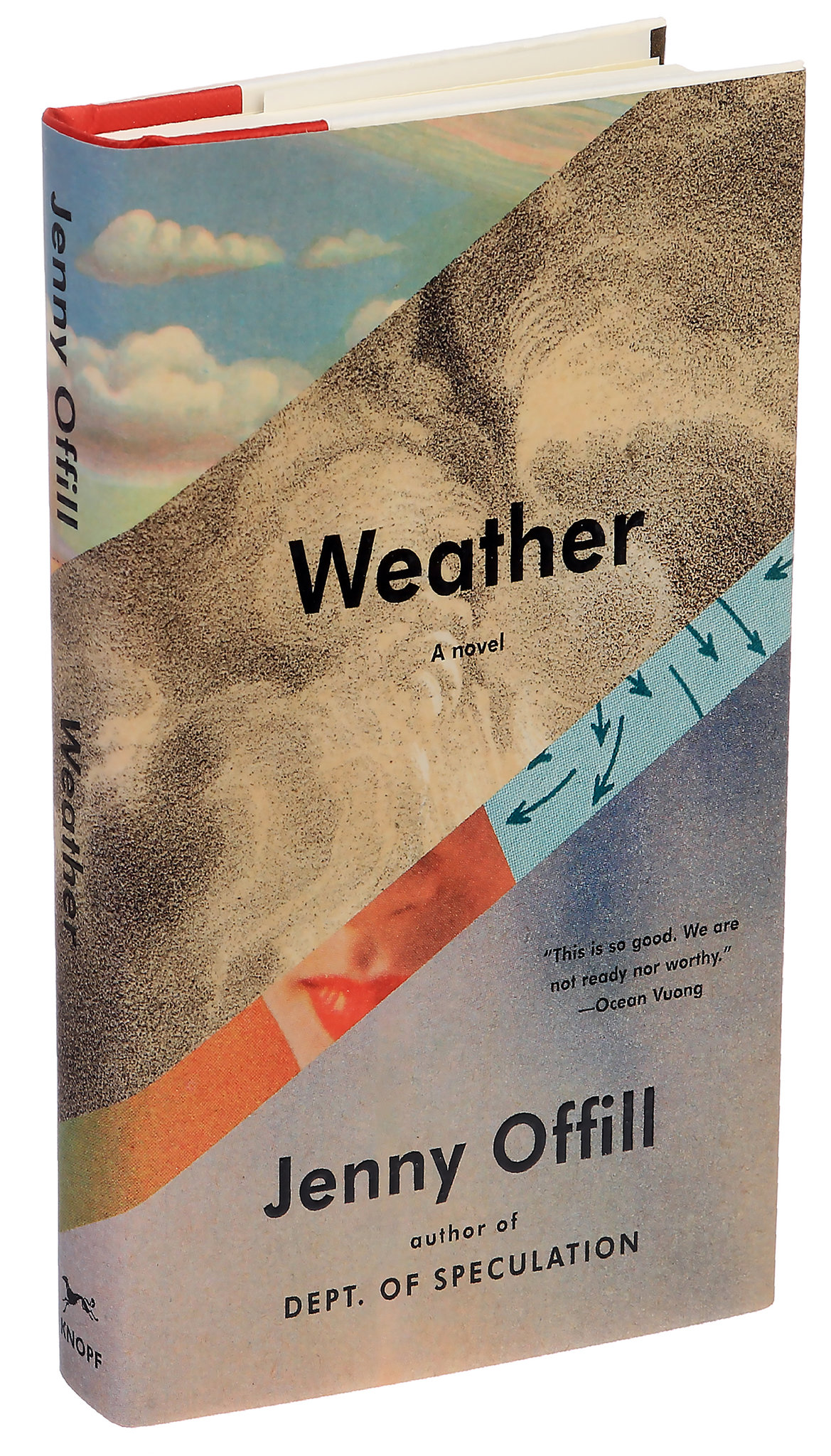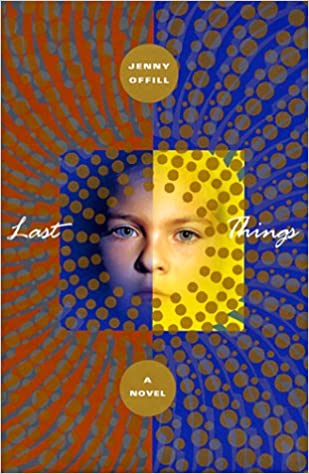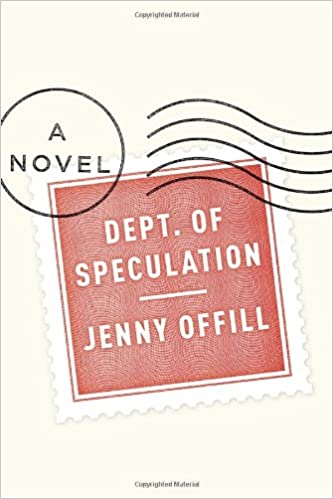
Jenny Offill is the rare contemporary writer for whom my five-year-old son and I can share an appreciation. That’s because, in addition to being a widely praised novelist, Offill has authored a handful of picture books that meet the standards set by a half-decade’s worth of pre-bedtime reads. While there are plenty of (adult) novelists who also write for YA and middle-grade audiences, the list of those who dabble in picture books has to be shorter, I reckon. Offill is the one of the few I’ve come across in my time browsing the aisles of the children’s section of my local library trying to find something, anything, please, to break the spell cast by Supertruck and Goodnight, Goodnight, Construction Site. Any parent knows it’s as difficult to pin down the secret to a successful picture book—one enjoyed by reader and audience alike—as it is to pin down the secret to a successful novel. But when one works, it’s immediate and obvious. Offill’s are like that. While You Were Napping (illustrated by Barry Blitt, of New Yorker cover fame) and 17 Things I’m Not Allowed to Do Anymore (illustrated by Nancy Carpenter) are our particular favorites. These titles, like all of Offill’s picture books, share two key elements: vivid illustrations (although one might take this as a given, it’s not always the case that a good picture book has, you know, good pictures) and humor that has both adult sophistication and juvenile appeal. For example, 17 Things I’m Not Allowed to Do Anymore has its narrator, a spunky elementary-age girl, list some of her ingeniously naughty ideas and their resulting prohibitions: “I had an idea to glue my brother’s bunny slippers to the floor. I am not allowed to use the glue anymore . . . I had an idea to freeze a dead fly in the ice cube tray. I am not allowed to make ice anymore.” As the parent chuckles at the narrator’s crimes, the child laughs at both the setup and the punch line. In While You Were Napping, a devious older sister sows jealousy in her younger brother by describing a series of outlandish events involving pirates, robots, and a dinosaur skeleton that just happened to have occurred when he was taking his afternoon siesta. With scenarios that grow ever more absurd, the book is a testimony to the power of a child’s imagination as well as to the everyday cruelties of sibling rivalry.
One way to think about how picture books work is to view each as presenting the author’s particular vision of what childhood should be. This idealizing tendency results in a lot of sentimental schlock, because we all want our kids’ lives to be blissful cloud dreams populated with talking teddy bears and anthropomorphic automobiles. Offill is certainly not the first children’s author to push against this tack by celebrating more frowned-upon, yet no less crucial, ingredients to a well-rounded childhood, namely mischief and lying (Shel Silverstein and Kay Thompson, creator of the Eloise books, come to mind as forerunners), but it’s interesting to consider how the vision of childhood presented in her picture books affects an adult’s experience of her novels, all of which, including her latest, Weather, examine, in various ways, the problem of making a family in a dangerous, uncertain world.

Offill’s first book, Last Things, is the only one of her novels to be narrated from a child’s point of view. It tells the story of an eight-year-old girl, Grace, who is caught between the competing universes of her larger-than-life parents, Jonathan and Anna. Jonathan is a chemistry teacher who carries around a copy of the Constitution—the embodiment of rational, reality-based living. Anna is an ornithologist who works at a bird sanctuary, but who also believes that there’s a Bessie-like monster living in the lake near their home in Vermont. Anna likes to spin fantastical yarns in the tone of sober scientific explanations:
That night, my mother told me about the hyena men of Africa who have two faces, one in back and one in front. If a hyena man meets a young girl on the road, he shows her his first face, which is handsome and human. In back, he hides his terrible face, which has powerful teeth for crushing bones. Sometimes a girl falls in love with a hyena man, never realizing what he is. She leaves her family and marries him. Then one night the man comes home hungry and shows his true face in the dark. He takes his wife in his arms and tears her to pieces with his sharp teeth.
Since she spends most of her time with her mother, Grace feels herself drawn to the mythical side of the divide, but the narration is cleverly understated so that we never know how many of Anna’s tall tales Grace actually believes. As Anna’s behavior grows more extreme, and the reader realizes that Last Things is actually a book about mental illness, Grace defects to the patriarchal country of pure rationality by betraying her mother. Yet, even as we empathize with Grace, and pity her for the strange, disturbing situations she finds herself in, the disappearance of Anna’s perspective from Grace’s life feels consequential and tragic. The book presents a kind of thought experiment on upbringing. How do you prepare a child for the world, if you largely disapprove of what the world has become? Is the solace of intimate family life enough?

Dept of Speculation entered the world in 2014, fourteen years after the publication of Last Things (Offill’s turn to picture books came in the interim, a means, she has explained, of paying the bills). The novel applies a fragmentary, epigrammatic style to a familiar story of domestic turbulence. The protagonist, a novelist and writing teacher, and her husband, a sound artist who has a day job scoring commercials, live in Brooklyn with their daughter while suffering the financial pressures common to the overeducated, underpaid urban bourgeoisie. Offill has described the book as “a bit of a ‘fuck you’ to the way novels about domestic life are usually treated . . . I wanted to write a philosophical novel that was set in that often-trivialized realm [the family].” Indeed, one of the book’s chief charms is its ability to switch between asides on philosophy, religion, and science and descriptions of the events of the characters’ everyday lives—all without provoking whiplash or boredom in the reader. One reason this works is Offill’s liberal deployment of line breaks and white space; the slim, small novel has the feel of a book of aphorisms. More important is the book’s sparklingly dry humor. Reading it, I was reminded of the deadpan delivery of the standup comic Steven Wright.
The line breaks, the Buddhist koans, the jokes—all this results in a sense of playfulness absent from Last Things, even as Dept of Speculation grapples with many of the same problems. In the wake of the novel’s seminal event, the husband’s affair, the wife is forced to confront the question of what she wants out of family life—in essence, her own life—in a way that she has never done before:
The wife wants to go to the hospital. But she does not want to have gone to the hospital. If she goes, she might not come back. If she goes, he might use it against her. But when she is alone, the objects around her bristle with intent. This is fascinating to her but it must remain a secret. She packs her daughter’s lunches and reads her to sleep. On the playground, she impersonates a reasonable mother watching her child play in a reasonable way. She goes to work, hovers above herself as she speaks about all manner of things . . . She stays up half the night, her brain whirring and whirring. She looks up school calendars in other cities. She investigates the cost of cars, of heat, of health insurance. She makes a plan a, a plan b, a plan c and d and e. Of these, only one involves the husband.
Like Anna in Last Things, the wife in Dept of Speculation is keenly aware of the injustices and compromises that hang over her domestic situation. (A passage on how difficult it is for a woman to live the life of an “art monster” informs Claire Dederer’s excellent Paris Review essay on the work of Woody Allen and other “monstrous men”). Unlike Anna, though, the wife is mentally stable, and she’s able to find a way to continue within the family unit. In the final pages of Dept of Speculation, the textual intrusions from philosophy, science, and religion all but fall away; it’s as if all of the wife’s desperate attempts to find meaning, manifested in the noise of secondary sources and spiritual anecdotes, have finally ceased. The book ends on a note of tentative hope.
Weather presents itself as a successor to Dept of Speculation in style and themes even if it is not an outright sequel. Again we have a family of three, living modestly in New York City. This time the wife and narrator, Lizzie, is a librarian at a local university, and her husband, Ben, is a classics PhD who has taken up writing code for video games. Their son, Eli, is in first grade. The morsels from science, philosophy, and religion appear as well, although not as frequently. The differences between the two novels quickly begin to reveal themselves. At one point in Dept of Speculation, the narrator muses that “the reason to have a home is to keep certain people in and everyone else out.” In Weather, the walls have come crashing down, and the world has intruded upon the domestic sanctum. Where the earlier book keeps the focus on its unnamed central characters, as if to maintain a sense of allegory, Weather is populated by a Dickensian abundance of minor figures: Mohan, the guy who works at the local bodega; Mrs. Kovinski, a nosy neighbor in their building; Tracy, a bartender and Lizzie’s friend; Sylvia, Lizzie’s grad-school mentor—the list goes on. In its early pages, the book reads like a kind of fragmentary diary of a neighborhood, enlivened by Lizzie’s nimble observations and searching empathy. The plot, which arrived like a gun blast in Dept of Speculation with the revelation of the husband’s affair, emerges more slowly. In addition to serving as a sounding board for library patrons and neighbors (“I wish you were a real shrink,” Ben tells her. “Then we’d be rich.”), Lizzie acts as a kind of guardian for her brother, Henry, a recovering addict and continuing source of worry for her. She attends to him often; they go on walks in which they contemplate such subjects as whether Henry has sold his soul to the devil:
“What if I sold my soul to the devil when I was a kid?”
“You didn’t sell your soul to the devil.”
“What if I did but I don’t remember it?”
“You didn’t sell your soul to the devil.”
“But what if I did?”
“Okay, but think, Henry, what did you get for it?”
Offill peppered Dept of Speculation with references to poets like Rilke and Ashbery, and so I have to wonder whether Henry, with his dark thoughts and pathological helplessness, represents a nod to the protagonist of John Berryman’s Dream Songs (“bitter Henry, full of the death of love, / Cawdor-uneasy, disambitious, mourning / the whole implausible necessary thing”). An important bit of background, revealed late in the novel, is that Lizzie left her PhD program to take care of Henry during one of his vulnerable periods. With help from Sylvia, she later landed the gig at the university library. Lizzie’s constant minding of Henry is another source of tension in her marriage.
Sylvia is a frequent public speaker and host of Hell or High Water, a popular podcast about environmental and social catastrophe—imagine a cheerfully busy public intellectual in the vein of Steven Pinker or Martha Nussbaum. She asks Lizzie to be her part-time factotum, serving as her assistant on the road and answering listener emails. Often focused on imagined scenarios resulting from climate change, the questions and Lizzie’s answers are woven into the text of the novel and help fuel Lizzie’s increasing survivalist paranoia. Roving the aisles of the library during her lunch breaks, she picks up tips on things like how to make a candle from a can of tuna and compiles a list of prepper acronyms:
GOOD = Get Out of Dodge
DTA = Don’t Trust Anyone
FUD = Fear, Uncertainty, and Doubt
BSTS = Better Safe Than Sorry
WROL = Without Rule of Law
YOYO = You’re on Your Own
INCH = I’m Never Coming Home
For a book that begins with not a lot of action, Weather soon becomes crowded with incident. In addition to the travails with Sylvia, there are happenings related to Eli’s school, the driver of the car service Lizzie uses although she cannot really afford it, the meditation classes given in the basement of the library. When Henry’s wife becomes pregnant, Lizzie worries that fatherhood will upset the delicate balance of his life and threaten his sobriety. She and Ben continue to be at odds. And then Donald Trump is elected president.
It now seems inevitable that every American novel set after 2016—perhaps whether it describes current events or not—will face the question of how it addresses the “new normal” of living in a society faced with existential threats of creeping authoritarianism, state-supported bigotry, and flagrant public corruption, not to mention the coming global climate disaster. (As Will, Lizzie’s war-correspondent almost-paramour, tells her, “Your people have finally fallen into history . . . The rest of us are already here.”) In Weather, Trump’s election represents not so much a break from the status quo as an accelerant for everything the characters were already afraid of. In the second half of the book, Lizzie’s personal life unravels alongside the nation’s sense of normalcy. Ben takes Eli on a three-week road trip that threatens to become a more permanent separation; Lizzie flirts with a neighbor and tiptoes toward the line of having an affair; Henry relapses, beset by morbid visions of causing his infant daughter’s death. In its final pages, the book is harrowing, gorgeous, and tender. As in Dept of Speculation, the novel’s conclusion sees the main character grasping for hope but under completely different circumstances and for completely different reasons. Where the wife in Dept of Speculation looks inward and to her immediate family for solace, Lizzie is forced to find it in her friends, coworkers, and neighbors. If one agrees that a well-crafted novel can have a lesson, however implicit, there is one here—namely, about what sort of community it will take to overcome our present and future obstacles.
One of the best things about reading a book to your child is that it’s impossible to check Twitter while you’re doing it. Nothing scary can happen during that time; the world is at bay, however temporarily. In Jenny Offill’s picture books, childhood occurs as a carefree frolic within a protected world. Actions have consequences, but those consequences are contained and limited by the boundaries of the family. Her picture books remind us of what is special about being a kid, the innate sense of trust and creativity that allows someone to do something like walk backwards all the way home or imagine eating a meal of French-fry sandwiches alongside a giant, friendly robot. But in recent years, the United States government has shown that once-sacred family bonds can be broken in service of nativist immigration policy. Climate change has fundamentally altered the way we think and talk about the future our children stand to inherit. (“Do you really think you can protect them? In 2047?” Sylvia asks Lizzie in Weather.) And now, as I complete this review, daily life around the world has ground to a halt in response to a rapacious pandemic for which we seem woefully unprepared. Even before the present crisis, I had often found myself wondering, when sitting down to read a book about crayons or mallard ducks in search of a place to build their nest, whether we’re doing our children any favors by inculcating a sense of the world as a just, fair place when so often it seems that the opposite is true. Henry is the extreme embodiment of this darker view. He is debilitated by fears of what the world will do to his child. “Do you ever think it’s weird that we even have families?” he says to Lizzie at one point in the novel. But while Weather doesn’t explicitly disavow Henry’s point of view, it doesn’t condone it either. There is such a thing as a healthy amount of fear: anyone who isn’t scared by the facts of climate change, for example, shouldn’t be trusted. But you shouldn’t live your life according to fear, and you certainly shouldn’t raise your children in an atmosphere of fear. Weather shows how the family can never be a fully protected or separate unit, anyway, but is more like a porous skin through which we interact with others, form relationships, let outsiders in. And now, during these lonely, seemingly endless days of shelter in place, the book is a reminder of all we have to gain from the other lives in our local orbit. ![]()
Wilson McBee is a staff writer for SwR.
